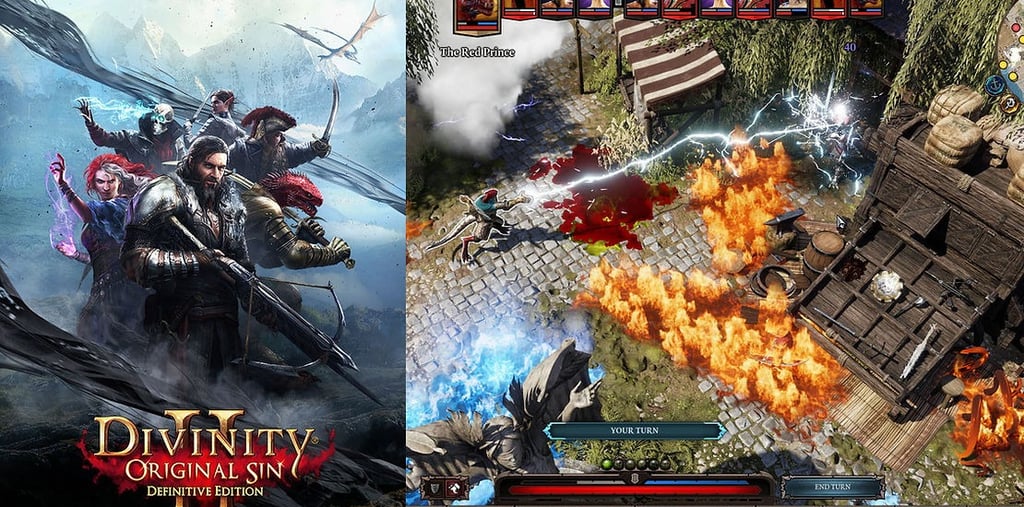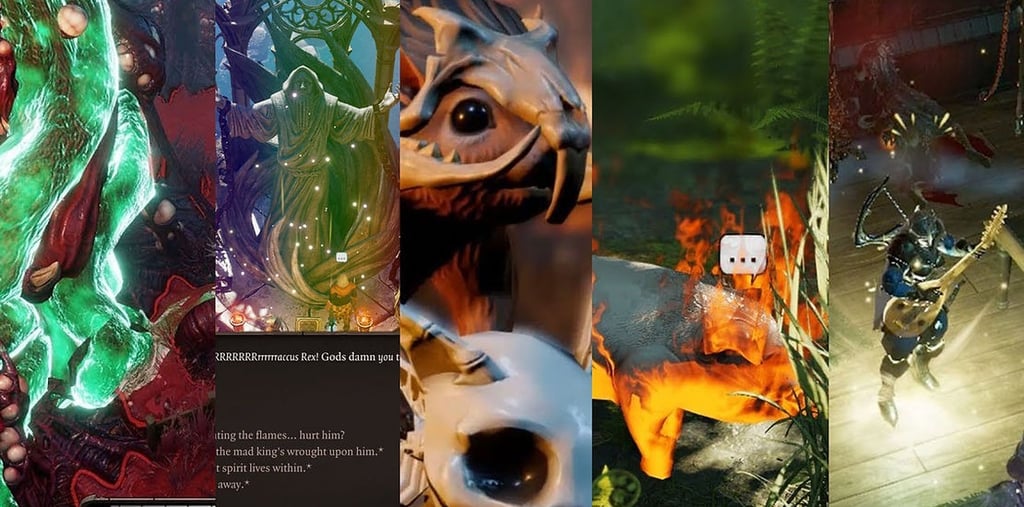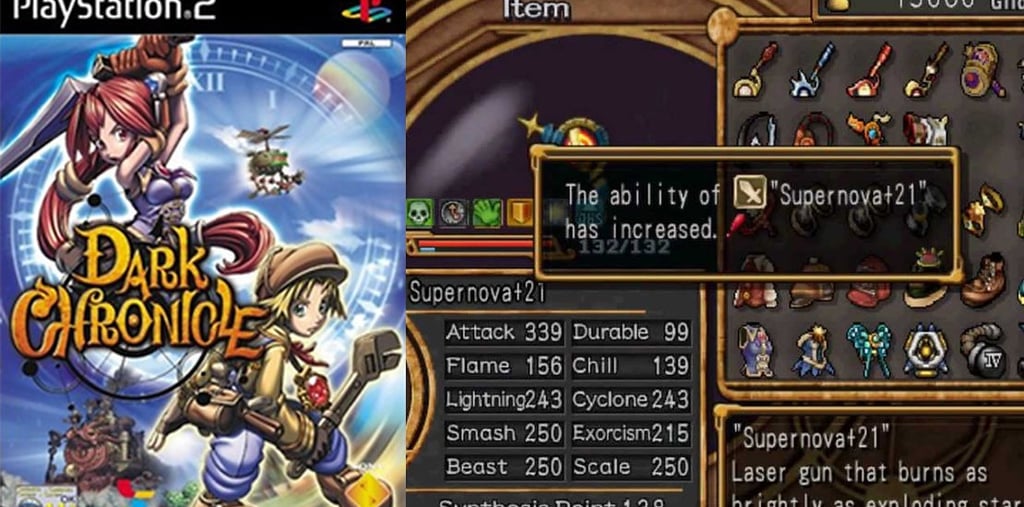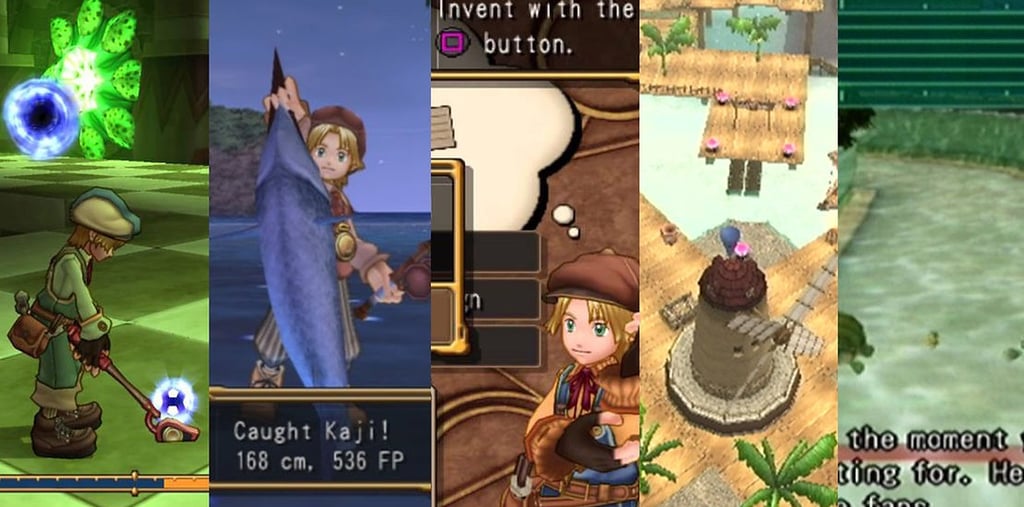Emotional Variation: Divinity Original Sin 2 & Dark Chronicle
GAME ANALYSIS
7/3/20254 min read


Divinity Original Sin 2, developed and published by Larian Studios in 2017, is a critically acclaimed tactical RPG, inspired by the likes of Baldur’s Gate, Ultima 7 and others. As a fan of the genre and of the first title, I had high expectations for this game, and the game I got delivered beyond expectations.
DOS2: Emotional Diversity creates immersion & curiosity for exploration
Divinity Original Sin 2 benefits from great art, fantastic writing and voice-acting, engaging combat mechanics, great player agency and exploration, but what sets it apart as a masterpiece is its ability to generate varied emotions in the player. ‘Variation’ sits as one of the 5 pillars of the ‘Pleasure’ model I created, which you can see on the side of the main page of my blog. Today, I want to talk about how Divinity Original Sin 2 makes best use of that pillar to build a world-class engaging narrative experience.
The game pulls inspiration from various genres, with moments of light fantasy, heroic fantasy or dark fantasy, and is able to jump from one tone to another from one quest to the next, or even inside the same dialogue. You might encounter and rescue a flaming pig, talk to them and send them to a sanctuary to reveal their tragic backstory or see them killed because a goddess didn’t like your tone. You might encounter a very solemn statue that suddenly starts yelling curses at the sky. You might have a chat with a carnivorous absent-minded turtle right next to a gang of religious zealots torturing slavers. You might be exchanging existential riddles with a skeleton only to be instantly killed by your sudden realization that life is an illusion. DOS2 is like a surprise box of feelings, you never know what you’ll get.


How emotions are made: The science of emotional engagement.
Book Recommendation: Lisa Feldman Barrett, in her book ‘How emotions are made’, tells us that emotion is prediction. To keep the player guessing at what’s coming next then, is synonymous with creating emotions, and thus engagement.
Prediction and engagement: This is why RPGs and their long progression mechanics keep us hooked, because we predict good things to come; variation is what keeps those rewards pleasurable.
Unpredictability & pleasure: The same applies to stories, with narrative progression and rewards. Divinity Original Sin 2’s narrative works so well because you cannot rightfully predict what is going to happen in a quest or what you might stumble upon while exploring. Because the game is able to so easily change its tone, your mind is kept burning in a state of wild-fire prediction, keeping you engaged, immersed, and wanting to push further.


Dark Chronicle: Gameplay Diversity - Give me a break and I'll complete the whole game.
An old-time favourite: Another game I would like to talk about here is Dark Chronicle. Developed by Level-5 and published in 2003, Dark Chronicle is considered by many as one of the great JRPGs of the PS2.
Gameplay diversity for a change of pace: While DOS2 excels at narrative variation, Dark Chronicle is a masterpiece example of gameplay variation. Would it shock you to know that Dark Chronicle is considered a great JRPG despite having terrible combat mechanics?
Intertwined progression systems: The fact of the matter is, Dark Chronicle is the best crafting game I’ve ever played, it’s also the best golf game I’ve played, there’s also fishing, fish management and breeding, fish races and contests, photography, city-building, and a myriad other things to do.
When playing Dark Chronicle, your brain is in prediction on multiple dimensions at the same time, constantly. Without even talking of the expansive weapon upgrade system which could warrant an article of its own and carries the game by itself, the beauty of all the afore-mentioned systems is that they all feed into each other. Photography helps your crafting, which helps your city-building and fishing, and all the rewards you get through these activities feed back into previous systems to loop around, next thing you know, you’ve spent 80 hours on a game with terrible combat just to get a cat costume, and you’re loving it.


Variation helps creating a break from the main experience and create smaller gameplay loops that don’t get dull because there is limited repetition. In Dark Chronicle, to do one thing, you must or are encouraged to engage with the other systems, there is simply always 4 different things to do and you find yourself incapable of putting the controller down.
The importance of emotional variation:
DOS2 and Dark Chronicle are both fantastic games because they are able to use that principle of a counterforce: create variation to create a break from and put into perspective the main experience. Create variation and build perpetual surprise into the player experience. Keep them thinking, keep them engaged in the game world and they simply won’t be able to think of anything else. This is a beautiful thing when games are able to pull off something like DOS2 and Dark Chronicle, where there is a myriad of different things to experience, and all of it fits into a cohesive narrative or gameplay logic.
It seems to me too many games forget to create great variation in their experience. Over time, this creates a sense of dullness, predictability, and lack of perspective, where everything feels the same and nothing makes sense. We should all look toward the games that are able to create variation not only for variation’s sake, but also to reinforce the game logic and narrative by showing a more rounded view of the game universe and a window into an infinity of prediction.
Connect
Let's collaborate on your next game design project:
damien.f.rodriguez@gmail.com
© 2025. All rights reserved.